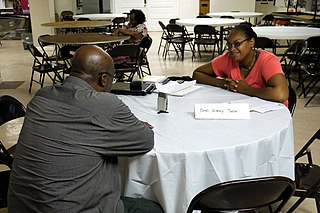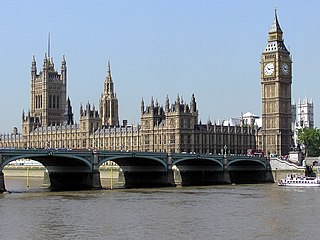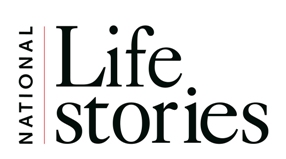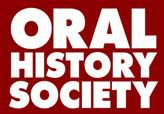
Oral history is the collection and study of historical information about individuals, families, important events, or everyday life using audiotapes, videotapes, or transcriptions of planned interviews. These interviews are conducted with people who participated in or observed past events and whose memories and perceptions of these are to be preserved as an aural record for future generations. Oral history strives to obtain information from different perspectives and most of these cannot be found in written sources. Oral history also refers to information gathered in this manner and to a written work based on such data, often preserved in archives and large libraries. Knowledge presented by Oral History (OH) is unique in that it shares the tacit perspective, thoughts, opinions and understanding of the interviewee in its primary form.

Citizens Advice is a network of 316 independent charities throughout the United Kingdom that give free, confidential information and advice to assist people with money, legal, consumer and other problems. The twin aims of the Citizens Advice service are "to provide the advice people need for the problems they face" and secondly "to improve the policies and principles that affect people's lives". This research and campaigns agenda also known as "social policy" is more preventative in nature and designed to stop problems arising in the first place.
The Institute of Historical Research (IHR) is a British educational organisation providing resources and training for historical researchers. It is part of the School of Advanced Study in the University of London and is located at Senate House. The Institute was founded in 1921 by A. F. Pollard.

The Nautical Archaeology Society (NAS) is a charity registered in England and Wales and in Scotland and is a company limited by guarantee.

The Parliamentary Office of Science and Technology (POST) is the Parliament of the United Kingdom's in-house source of independent, balanced and accessible analysis of public policy issues related to science and technology. POST serves both Houses of Parliament.
The Design History Society is an arts history organisation founded in 1977 to promote and support the study and understanding of design history. The Society undertakes a range of charitable activities intended to encourage and support research and scholarship, to offer information and create networking opportunities, to foster student participation and public recognition of the subject, and to support regional links and events. The Society welcomes members from related disciplines such as anthropology, architecture and art history, business history, the history of science and technology, craft history, cultural studies, economic and social history, design and design management studies. An elected Executive Committee and Board of Trustees works to enable the activities of the Society, and to ensure that design history is appropriately represented in higher education and research bodies in the UK.

The Hall–Carpenter Archives (HCA), founded in 1982, are the largest source for the study of gay activism in Britain, following the publication of the Wolfenden Report in 1957. The archives are named after the authors Marguerite Radclyffe Hall (1880–1943) and Edward Carpenter (1844–1929). They are housed at the London School of Economics, at Bishopsgate Library –, and in the British Library.
The British Thoracic Society (BTS) was formed in 1982 by the amalgamation of the British Thoracic Association and the Thoracic Society. It is a registered charity and a company limited by guarantee.

The Society for the Promotion of Roman Studies was founded in 1910 as the sister society to the Society for the Promotion of Hellenic Studies.

The British Cave Research Association (BCRA) is a speleological organisation in the United Kingdom. Its object is to promote the study of caves and associated phenomena, and it attains this by supporting cave and karst research, encouraging original exploration, collecting and publishing speleological information, maintaining a library and organising educational and scientific conferences and meetings.

The US-UK Fulbright Commission was created by a treaty signed by the United Kingdom and the United States on 22 September 1948. It is a non-profit organisation based in London, UK. Its aim is to foster mutual cultural understanding through educational exchange between both nations. To do this, Fulbright helps students, scholars and professionals interested in studying abroad in the US or UK through its world-renowned scholarship programme and its EducationUSA advice service.
The IT History Society (ITHS) is an organization that supports the history and scholarship of information technology by encouraging, fostering, and facilitating archival and historical research. Formerly known as the Charles Babbage Foundation, it advises historians, promotes collaboration among academic organizations and museums, and assists IT corporations in preparing and archiving their histories for future studies.

The International Association of Sound and Audiovisual Archives (IASA) was established in 1969 to serve as a forum for international co-operation between archives, libraries, and individuals interested in the preservation of recorded sound and audiovisual documents.

National Life Stories is an independent charitable trust and limited company based within the British Library Oral History section, whose key focus and expertise is oral history fieldwork. Since 1987 National Life Stories (NLS) has initiated a series of innovative interviewing projects funded almost entirely from sponsorship, charitable and individual donations.
The British Geotechnical Association is a learned 'Associated Society' of the Institution of Civil Engineers, based in London, England, and a registered UK charity. It provides a focal point for organisations and individuals interested in geotechnical engineering.
The British Society for Research on Ageing (BSRA) is a scientific society which promotes research to understand the causes and effects of the ageing process. The BSRA encourages publication and public understanding of ageing research and holds an annual scientific meeting. Many notable scientists with an interest in ageing are either past or current members of the organisation, which has exerted a marked influence on ageing research within the United Kingdom and internationally.

The British Academy of Management (BAM), founded in 1986, is a learned society dedicated to advancing the academic discipline of management in the United Kingdom. It is a member of the Academy of Social Sciences. The academy runs two academic journals: the British Journal of Management and the International Journal of Management Reviews. Once a year, it publishes an article which is presented at the annual conference. The headquartered of the British Academy of Management is in London, United Kingdom.
Clement Alexander Price was an American historian. As the Board of Governors Distinguished Service Professor of History at Rutgers University-Newark, Price brought his study of the past to bear on contemporary social issues in his adopted hometown of Newark, New Jersey, and across the nation. He was the founding director of the Institute on Ethnicity, Culture, and the Modern Experience at Rutgers; the vice chair of President Barack Obama's Advisory Council on Historic Preservation; the chair of Obama's transition team for the National Endowment for the Humanities; a member of the Scholarly Advisory Committee of the Smithsonian's National Museum of African American History and Culture; and a trustee of the National Trust for Historic Preservation. He was appointed City of Newark Historian in early 2014. His service to New Jersey included appointments by Governors Brendan Byrne and Thomas H. Kean to the New Jersey State Council on the Arts, which he served as chair for two terms, and by Governor Christine Todd Whitman to the board of the Save Ellis Island Foundation, which he also chaired.

The Construction History Society is a learned society that promotes the international study of the history of construction. Though based in Britain, it is interested in the history of construction of all countries and particularly how those histories inter-relate. A key aim is the preservation of the primary records of construction companies and individuals.. The society publishes a peer-reviewed journal - Construction History - twice a year; and a magazine - The Construction Historian - as and when it can. It hosts an annual conference at Cambridge University and supports the triennial conferences if its sister organisations worldwide.
The Military Historical Society of Australia (MHSA) is a voluntary organisation formed in 1957, focused upon promoting research and study of Australia's military history. Administered by a federal council based in the Australian Capital Territory, the society has state and regional branches in all states of Australia, except New South Wales, which split from the organisation in 1968. The society has published a quarterly journal, Sabretache, continuously since mid-1958.












